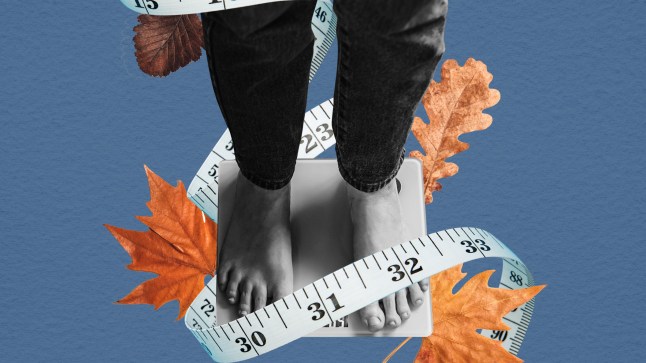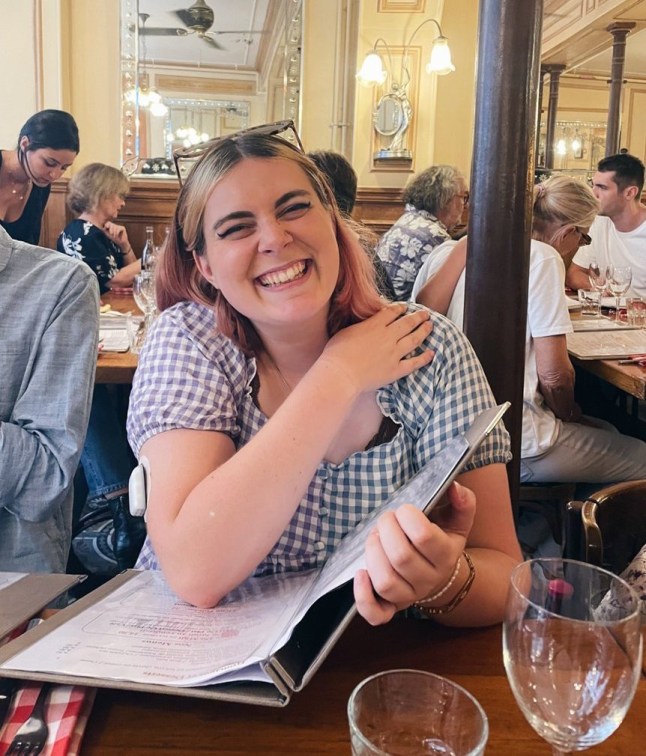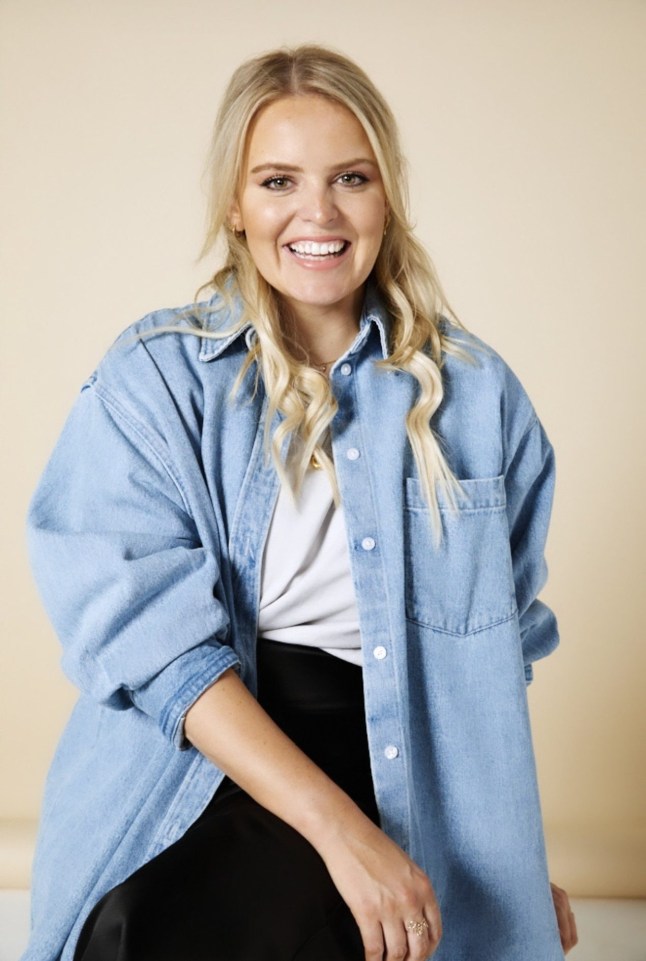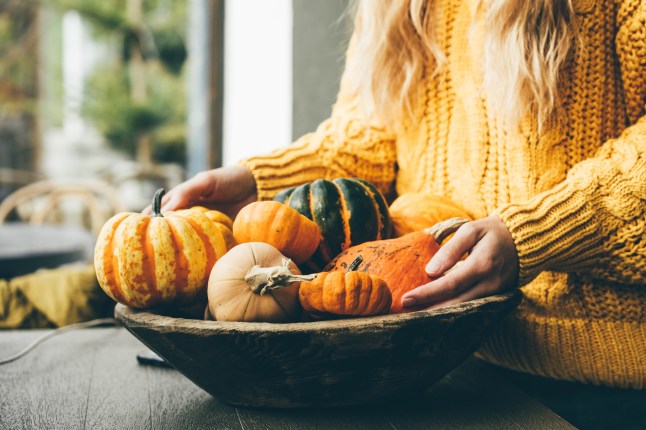5 Oct, 2025 | Admin | No Comments
‘Skinny girl summer’ is over — but society is still fatphobic, even in autumn


Leaves that slowly turn orange. Sunshine mornings with a chill in the air. Swapping out the summer wardrobe for cosy jumpers.
With autumn well underway in the UK, I can finally breathe a sigh of relief because, while I enjoy soaking up the vitamin D, summer is always complicated for me.
I’ve always leaned slightly more towards ‘mid-size’. Having my arms on show makes me feel vulnerable. I’ve had friends ask me if I’m too hot when I’ve deliberately kept a denim jacket on in 20-degree heat, which I’ve brushed off with a generic: ‘I didn’t check the weather forecast before I left the house today.’
Of course, it’s not just me. In 2024, the US Forbes Health survey found that more than half (51%) of Gen Zs feel pressured to either ‘get fit’ or ‘lose weight’ before going on holiday. And one 2025 UK study found that 22% of people reach the height of their discomfort showing their legs either at the beach or the swimming pool.
And this year, there’s been even more reason for me to crave the cool air that this season brings.

This year of the ‘skinny girl summer’
There’s no doubt about it, summer 2025 was, depressingly, ‘skinny girl summer.’
The likes of Ozempic, Wegovy and Mounjaro stopped being the reserve of A-listers, and firmly entered into the mainstream. A study from Kantar found that between March 2024 and August 2025, usage of GLP-1 drugs almost doubled, increasing from 2.3% to 4.1% of the population. Weight loss is now the main reason cited for taking it, superseding management of type 2 diabetes.
As families prepped to jet off for their summer holidays, there was advice on getting pens through customs, and how to bend the drug’s no-alcohol rule.

And, when I flicked my television on in the light evenings, I’d notice adverts for GLP-1 medications, forcing their way into the comfort of my living room. In July, the Advertising Standards Authority even banned an ‘irresponsible’ advert from M&S featuring a model with ‘large pointed shoes’ that emphasised ‘the slenderness of her legs.’
And in August, Serena Williams, one of the greatest tennis players of all time, revealed that she’d lost just over 14kg after using GLP-1 jabs. In an interview with Vogue, she said: ‘My whole life is being in the gym, working out, running, training, HIIT training, dancing… I would always get to a certain point on the scale, but I could never get below that.’
‘Your body isn’t seasonal – there’s no deadline for feeling at home in it’
Alex Light, a body image speaker and the author of You Are Not A Before Picture, has spent much of her life struggling with what she’s seen in the mirror. As a teen, she was dieting, constantly ‘chasing an ideal that kept changing.’ And in her 20s, she developed an eating disorder that ‘dominated’ the entire decade.
Alex has cultivated a ‘fairly steady’ relationship with her own body image through recovery – but she can’t help but feel concerned by the ‘pressure to be thin,’ which, in her view, ‘feels louder and heavier than ever.’

‘We’ve reverted back to the same old message that has hurt us for an extraordinarily long time: shrink yourself to be worthy of the beach, of attention, of being seen. The discourse has left a lot of people feeling like they’re back at square one with their body image, and I’ve felt that frustration too,’ 37-year-old Alex, who lives in London, shares.
Reflecting on the change of the seasons, Alex recognises that for some, the end of summer can feel like a ‘relief’ as that ‘intense spotlight’ dims a little.
‘It can also stir up guilt if you spent the season feeling like you “hid” or didn’t live fully. Try to remember that your body isn’t seasonal and there’s no deadline for feeling at home in it,’ she shares, offering up advice for anyone who might be struggling as the leaves turn brown.
‘It can be a good time to shift the focus away from how your body looks and towards how you want to feel in it: maybe comfortable or strong, rested, nourished. Body confidence isn’t about loving every inch of yourself all the time; it’s about loosening the grip that shame and comparison have over your life.’
How does body image change with the seasons? It’s complicated
Dr Helena Lewis-Smith is a health psychology researcher at the University of the West of England, specialising in body image. She highlights that people who already face discrimination, including based on their bodies, are likely to experience ‘compounding pressures.’
‘Societal messaging that equates thinness with success or desirability can intensify scrutiny and stigma, reinforcing existing inequalities and potentially increasing discrimination already faced by marginalised groups,’ she says.
Elsewhere, she reminds us that autumn isn’t a quick fix for a more body positive mindset: in a few months, the diet industry will be feeding – and profiting – off people’s insecurities in January.
‘Generally, we know that from April and May people begin to feel anxious and that’s when they’ll start pursuing these weight loss behaviours. The fact that you’re outside seeing people, you’re more likely to engage in body comparisons, more so than say in the autumn and the winter when you’re staying in and drinking your red wine, sat on the sofa. This is when people really start to engage in weight loss strategies,’ she notes.
'Black women are literally killing themselves to fit beauty standards'
As Philomena Kwao previously wrote for Metro, the body image struggles can intensify for many Black women:
‘How we view our bodies is much more complex than how western media portrays it. Beauty standards are set by cultural boundaries and traditions, something advertisers consistently fail to understand.
‘Growing up as a black woman, I never wanted to be skinny. The ‘heroin-chic’ look of the late ’90s to early ’00s was never an ideal body in my eyes, nor a point of discussion to anyone around me.
‘Growing up in an age before social media, my beauty standards were defined by the images and media in my surroundings, which at the time was predominantly African American.
‘In my world, we rarely saw the thin white woman.
‘We saw the video vixen in music videos – she was our beauty standard. Her pert round bottom, her defined skinny waist and her ample bosom. An exaggerated hourglass.
‘We all wanted to be like her, and to a certain extent, we all still do.
‘Growing up as a black girl, if you didn’t have a small waist or a big bum, you were considered ugly.’
‘People might be feeling slightly less pressure from now onwards, but then come January, it continues again. From the research, we know that people tend to start pursuing weight loss strategies again, come the New Year.’
As Dr Helena shares, one of the biggest mechanisms for people experiencing body image concerns, no matter what the weather’s doing outside, is the comparison spiral.
‘People compare themselves with their friends, on social media, with influencers, and that is one of the main reasons why people feel dissatisfied with their bodies because they don’t match up to what they’re seeing,’ she explains.
‘We live in a fatphobic society that doesn’t value people who live in larger bodies. But there are people who are not living in larger bodies who are taking these drugs.’

So, what’s the answer? From a health psychology perspective, Dr Helena believes that there should be a greater emphasis on helping people, rather than shaming them into weight loss.
This might include teaching strategies, behaviours and thoughts to empower people to do things like ‘practise intuitive eating’ or ‘eat food that’s going to fuel them.’
There’s one caveat, though: this type of psychological support typically isn’t offered alongside GLP-1 drugs, which Dr Helena says is a ‘very narrow approach to weight loss.’
‘We conflate weight with health, and we shouldn’t be doing that, as health is so much more. The irony is, if you encourage people to have better body image, that person will probably end up losing weight, but they’ll do it in a healthy way,’ she concludes.
So, while there needs to be room for plenty of nuance, perhaps the only way for us to really feel confident in our bodies is to completely dismantle the systems that fuel fatphobia and misogyny altogether. And that’s quite the radical task, no matter the season.
Do you have a story to share?
Get in touch by emailing MetroLifestyleTeam@Metro.co.uk.
Write Reviews
Leave a Comment
No Comments & Reviews